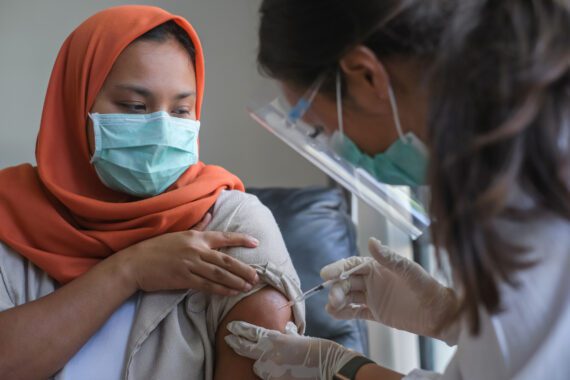The best anti-poverty program in United States these days, if not elsewhere, is universal basic income (UBI). We saw proof of this in the latest Census Bureau report released in September.
The proof is apparent via some depressing news, unfortunately. In 2022, the Census report shows, the child poverty rate more than doubled, rising to 12.4 percent, compared to 5.2 percent in 2021. The increase in child poverty was caused mostly by the expiration of improvements to the Child Tax Credit made in 2021 in the American Rescue Plan. As many of our supporters know Bread for the World has been a persistent advocate for these improvements.
Between July and December of 2021, the Child Tax Credit increased from a maximum of $2,000 per child to $3,600 for children under age six, and to $3,000 for children between ages six and 17. Moreover, the credit was restructured to be delivered in monthly installments, rather than a lump sum payment during tax season: $300 per month to the families with children under age 6 and $250 to those with children 6 to 17. Hard to overstate this improvement to what resulted in similar dramatic progress against child hunger in 2021.
But the most important improvement of all was that the credit was made refundable, allowing it to become available to millions of families who previously earned too little income to qualify. It meant some 18 million children were newly eligible for the full tax credit, including 40 percent of all Black and Latino children, nearly half of all children in single-parent households, and more than one-third of rural children.
As a result of these changes, the Child Tax Credit became a form of universal basic income. You can call it anything you want; universal basic income is simply a recurrent payment—often delivered monthly—and is available to all members of a community with no work requirements or other conditions imposed on the recipients. That’s worth noting because work requirements became the main sticking point in negotiations to extend the improvements to Child Tax Credit beyond 2021.
Hence, it was a short-lived experiment, lasting only six months during the second half of 2021, but it led to an unprecedented reduction in child poverty and child hunger. And then it ended. What members of Congress giveth in 2021, they voted to taketh away in 2022—not all of them, but a majority was all it took to undo. Those 18 million children who benefited in 2021 were no longer eligible for the full tax credit in 2022.
The postmortems following release of the report emphasized how policies can make a difference in achieving progress against poverty and other hardships. In an op-ed published by Religion News Service, David Beckmann, Bread for the World’s president emeritus, lays this out as well as anybody has.
Another outcome revealed by the Census report also merits attention. It used to seem axiomatic to call “a job” the best anti-poverty program. (We don’t want to understate the value of steady employment. Earnings make up most of household resources, including for families that are in poverty). Jobs remain necessary to escaping poverty, but they clearly are not always sufficient—and haven’t been for some time. No year tests that theory better than 2022, when the unemployment rate was near historically low levels. Yes, inflation took a bite out of paychecks, but wages were rising for workers at the bottom of the income ladder faster than for workers on rungs higher up.
It is sad that policymakers for whom work requirements dominate their thinking about addressing child poverty won’t do more to improve jobs for parents who clearly want to provide for their kids. Here are a few examples of policy inaction: The federal minimum wage hasn’t received a raise since 2009, childcare policy lags behind other wealthy countries, and there remains no federal law guaranteeing a right to paid family and medical leave. There are many others, but those alone are enough for an evidence-based indictment of inaction.
So then, it’s not just that policies matter in addressing child poverty. It’s a very particular policy: a form of universal basic income delivered through the Child Tax Credit.
Public outrage over harmful government actions has a fleeting half-life. The best time to make an issue of the harm done to children by reversing improvements made to the Child Tax Credit is now.
Todd Post is senior domestic policy advisor, Policy and Research Institute, with Bread for the World.



